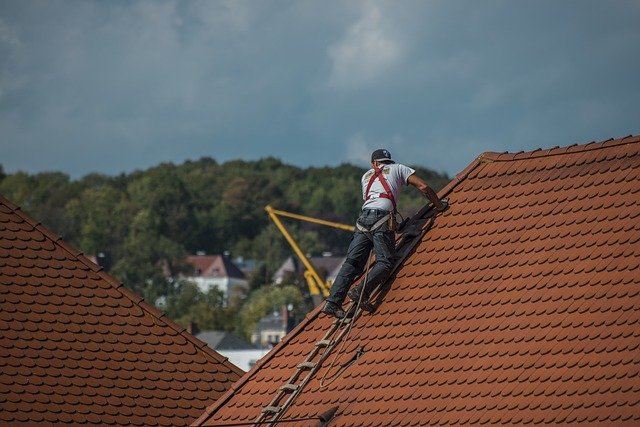How Much Does It Cost to Replace a Roof?
Replacing a roof is a necessary investment and a significant financial decision. For any homeowner considering this project, the first step is to understand the cost. This detailed guide breaks down the key factors that influence the final price, empowering homeowners to plan their budget and make the right choice.

What Factors Affect the Cost of Roof Replacement?
Several variables can impact the overall cost of replacing your roof:
-
Roof size: The larger your roof, the more materials and labor will be required, increasing the total cost.
-
Roofing material: Options range from affordable asphalt shingles to premium materials like slate or metal, each with its own price point.
-
Roof pitch and complexity: Steeper roofs or those with multiple angles and features are more challenging to work on, increasing labor costs.
-
Geographic location: Labor and material costs can vary significantly depending on your region.
-
Existing roof condition: If extensive repairs or complete tear-off is needed, this will add to the overall expense.
-
Building codes and permits: Local regulations may require specific materials or techniques, potentially affecting the cost.
What is the Average Cost to Replace a Roof?
The cost of roof replacement can vary widely, but understanding average prices can help you set realistic expectations for your project.
| Roofing Material | Average Cost per Square Foot | Average Total Cost (2,000 sq ft roof) |
|---|---|---|
| Asphalt Shingles | $3.50 - $5.50 | $7,000 - $11,000 |
| Metal | $6.00 - $12.00 | $12,000 - $24,000 |
| Wood Shakes | $6.50 - $11.00 | $13,000 - $22,000 |
| Slate | $9.00 - $16.00 | $18,000 - $32,000 |
| Tile | $7.00 - $18.00 | $14,000 - $36,000 |
Prices, rates, or cost estimates mentioned in this article are based on the latest available information but may change over time. Independent research is advised before making financial decisions.
It’s important to note that these figures are estimates and can vary based on the factors mentioned earlier. Additionally, prices may include the cost of materials, labor, and removal of the old roof. Always obtain multiple quotes from reputable contractors for the most accurate pricing in your area.
DIY vs Professional Installation: Which is More Cost-Effective?
When considering the cost of roof replacement, many homeowners wonder if a DIY approach could save money. Here’s a breakdown of both options:
DIY Installation:
-
Potential cost savings on labor
-
Requires significant time investment and physical effort
-
Risks of improper installation leading to leaks or damage
-
May void material warranties
-
Lack of professional equipment and safety measures
Professional Installation:
-
Higher upfront cost due to labor expenses
-
Expertise and experience ensure proper installation
-
Access to high-quality materials and bulk pricing
-
Warranty on both materials and workmanship
-
Faster completion time and adherence to local building codes
While DIY might seem more cost-effective initially, the long-term benefits and peace of mind provided by professional installation often outweigh the potential savings. Improper installation can lead to costly repairs and even premature roof failure, negating any initial savings.
How Can Homeowners Save Money on Roof Replacement?
While roof replacement is a significant expense, there are ways to manage costs without compromising quality:
-
Get multiple quotes from reputable contractors to ensure competitive pricing.
-
Consider timing your project during the off-season when contractors may offer lower rates.
-
Research available tax credits or incentives for energy-efficient roofing materials.
-
Maintain your current roof to extend its lifespan and potentially reduce the scope of replacement.
-
Choose durable, long-lasting materials that may offer better value over time.
What Additional Costs Should Homeowners Consider?
When budgeting for a roof replacement, it’s crucial to account for potential additional expenses:
-
Structural repairs: If your roof deck or trusses are damaged, they’ll need to be fixed before the new roof is installed.
-
Ventilation improvements: Proper attic ventilation is essential for roof longevity and may need to be addressed during replacement.
-
Gutter replacement or repair: Often, it’s an opportune time to address gutter issues while replacing the roof.
-
Skylight or chimney work: These features may require additional attention during the roofing process.
-
Disposal fees: The cost of removing and disposing of old roofing materials can add to the overall expense.
Understanding the full scope of potential costs will help you prepare a more accurate budget for your roof replacement project.
Replacing a roof is a significant investment in your home’s longevity and value. By considering the factors that influence cost, understanding average prices, and weighing the benefits of professional installation, homeowners can make informed decisions about their roof replacement projects. Remember to obtain multiple quotes, consider long-term value over initial costs, and factor in potential additional expenses to ensure a successful and cost-effective roof replacement.




